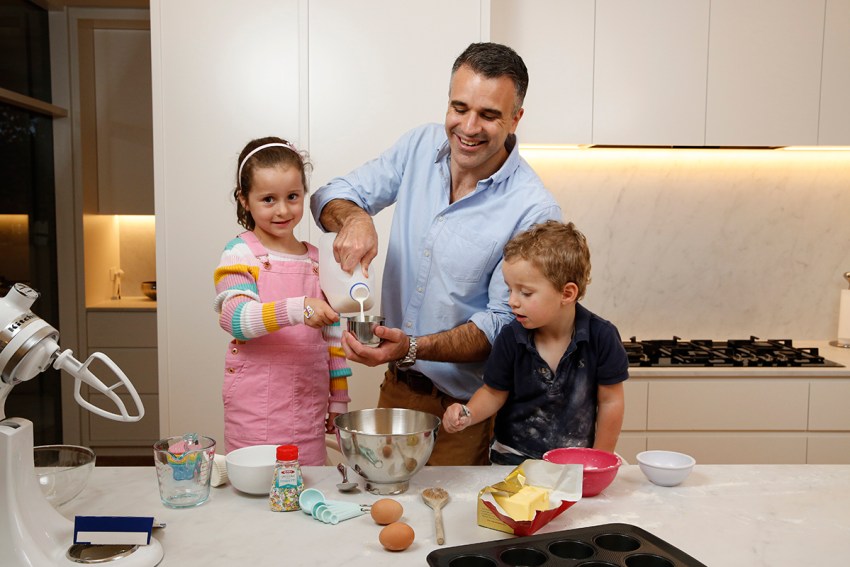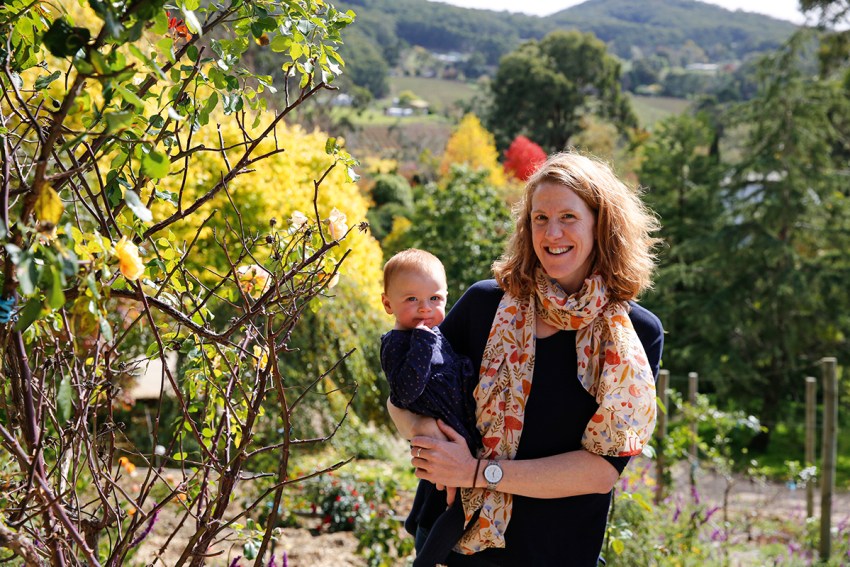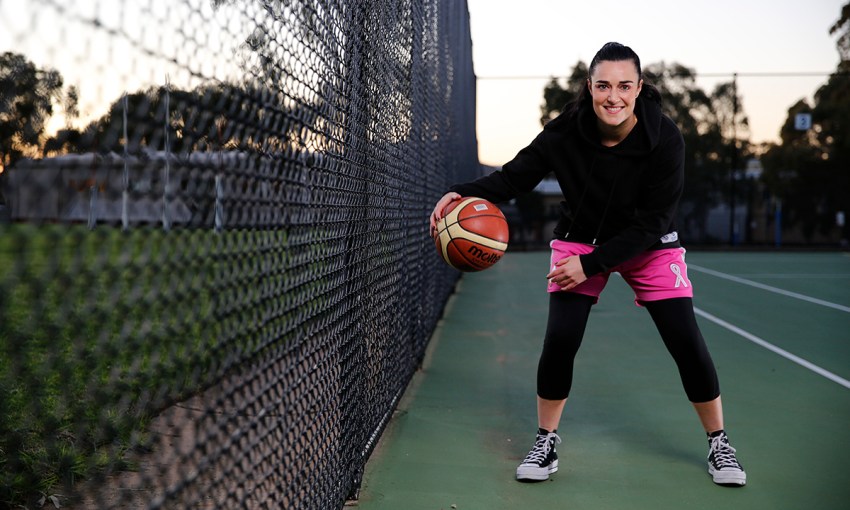Amid the chaos of the COVID-19 lockdown, it was the unexpected silver linings that helped these South Australians to overcome their challenges and better appreciate the little things in life.
SA’s COVID-19 lockdown: How I got through it
Bouncing back
Earlier this year, Nicole Romeo found herself confined to the walls of her apartment in the historic Sicilian town of Ragusa, with the possibility of arrest and even jail for violating the lockdown rules. On her television screen, the news was led by scenes of army trucks rolling through the streets of northern Italy.
Only a couple of weeks prior, Nicole had been travelling the country playing in crowded arenas for the professional women’s basketball team Virtus Eirene Ragusa. It was her second season with the club and her team was a frontrunner for the championship they had come close to winning the previous year.
“We were just getting into the exciting part of the season and I thought this would be our year,” Nicole says. “But when coronavirus hit, things escalated quickly.” After a game in Milan, which had become a COVID-19 red zone, her team returned to Sicily and were directed to self-isolate. Games were cancelled and, as restrictions increased, there was a real possibility of being arrested for leaving your home.
“People were in a panic because Italy has one of the oldest populations in the world; it was a scary time,” Nicole says. “I was in an apartment by myself and after three weeks I was getting pretty lonely and ready to come home.”
After arriving in Adelaide, having scrambled to secure a seat on a plane out of Italy, she spent another fortnight in isolation. It was a great relief to be home in Adelaide and spending some rare time with her parents at Athelstone, where she grew up.
“In Italy the streets were empty; there were no cars on the road and people were locked in their houses. When I came back to Adelaide it felt like business as usual; people still had their sense of freedom,” she says.
Nicole started her basketball journey with the Norwood Flames and after a stint of college basketball in the US, she played in the Women’s National Basketball League for several seasons, winning a championship with Canberra in 2010.
With her Italian background, her dual passport gave her a foot in the door to the European leagues. She has played in Germany, Spain, Turkey and now Italy. She has another year on her basketball contract in Italy but, with the competition thrown into an economic crisis, teams are struggling to afford to pay their players.
Renowned for her three-point-shooting, Nicole has been missing games but has been able to shoot hoops at her old school, St Ignatius College. “To keep fit and healthy like the rest of the world I’ve been doing my home workouts and focusing on diet. I’ve exhausted every option available on Netflix so now I’m shifting my focus to learning Italian and reading,” she says.
Nicole is still chasing an Italian championship, but for now, she is enjoying a very rare break from professional sport. “I haven’t stopped bouncing a ball since I was about five years old; It’s amazing getting paid to do what you love and it’s taken me all over the world,” she says.
“It’s been a while since I’ve been home with my family and I’ve been appreciating the little things, like a simple walk along the beach and some fresh air.”

Piece of cake
Parliament sitting days can get messy at times, but that’s nothing compared to the kitchen of opposition leader Peter Malinauskas when two-year-old son Jack wants to help big sister Sophie to make a batch of cupcakes.
Baking is not something Peter usually has much time for, as his political career comes with relentless after-hours commitments such as business functions, meetings, awards nights and multicultural events. “When coronavirus started to take hold, all of these events were cancelled within a couple of weeks, and that’s been replaced with an entirely different type of work,” Peter says.
An upside has been extra spare time on weekends to spend with his family, particularly on Sunday afternoons. It’s been a great opportunity to nurture Sophie’s new-found interest in cooking. Together they’ve made beef ragu, roast lamb, and Easter cookies, which were gift wrapped and dropped off to neighbours. Jack joins in but, at his age, he’s more interested in playing with the food.
“I have to say, I hadn’t done much baking in my life, but it’s good fun. Barbecues and slow roasting are usually my thing. We did Anzac biscuits and, despite the fact they all merged into one big biscuit, they were actually pretty yummy,” Peter says.
“I’ve really enjoyed that it’s something productive and fun we can do together. You get to see the effort and then the reward, which is really enjoyable. But we make a great big mess, particularly when Jack gets involved.”
Peter, 39, plays amateur football for Adelaide University, and that has been something he’s sorely missed during the pandemic. “Not being able to play is driving me crazy,” he says. “It’s one of the only opportunities I get to spend time with mates and do something where I don’t think about work; that’s the nature of a political leadership role.
“When you play footy, or any competitive sport, it’s two or three hours where you literally don’t think about anything else. And that I really miss, especially because I know how close I am to the end of my football career.”
In May, Peter and wife Annabel welcomed their third child Eliza. There was some anxiety about their pregnancy during the pandemic, but that unease began to lessen once South Australia was able to curb the number of new cases. “Despite the uncertainty, it gave us something exciting to look forward to,” Peter says.
Coronavirus has changed the South Australian political landscape in an unprecedented way, and Peter says as leader of the opposition, he has become more of a positive force. He has also been thinking about the future.
“People in my generation haven’t known recession in our working lives. I was a school kid when the last recession came around. The big focus is on the economic recovery for the state because it’s going to be a big challenge; we’re not even at the end of the beginning,” he says.
Peter says becoming a father has influenced the decisions that he makes each day. “In many ways, despite the challenges of trying to balance politics and family life, having children has made me even more motivated in the work that I do.”

Finger on the pulse
Emergency physician Dr Penny Conor is smiling more than she has in months, albeit with a cautious sense of optimism. Penny was on maternity leave, looking after her daughter Elsie, 10 months, and son Oliver, 3, until late February, when the increased threat of COVID-19 saw her make an early return to work and re-join her colleagues at Lyell McEwin Hospital’s Emergency Department.
Penny was given the role of COVID response lead, which meant she was in charge of planning how the 54-bed Emergency Department would respond to the viral outbreak, particularly worse case scenarios. Time spent looking after the children with her partner Tamsyn and gardening on their Adelaide Hills property gave way to planning for an unprecedented and deadly pandemic.
“There was a huge amount of uncertainty and anxiety,” Penny says. “We needed a coordinated approach, and I got the role. There was a very real threat that the entire health system would become overwhelmed and wouldn’t be able to cope. We’re just so thankful that it hasn’t happened that way.”
Penny closely studied the devastating impact the virus was having on health systems in other countries, and had to anticipate the worst. It was a worrying time for many of Penny’s colleagues, who were older or had vulnerable family members; some health workers moved out of their family homes.
“Working on the frontline is definitely a concern when you have a family,” says Penny, who had discussed swapping homes with her parents so that she could be isolated from the family.
“Because I was so engrossed in the work, it deflected some of the anxiety. I felt like I was trying to make a difference in terms of how we were going to manage it when it arrived,” she says.
Contingency plans were drawn up to deal with worst-case scenarios, while securing critical supplies became a major challenge. Anyone presenting to the hospital with symptoms had to be considered a potential carrier of COVID-19, which created a heightened workload and sense of unease for health workers.
“We had many other contingency plans that we didn’t have to enact, which was great,” Penny says. “There’s now going to be a continued but lower level of anxiety for a longer period of time, but I think South Australia’s in a really good place to manage it.”
Penny’s Emergency Department sees more than 70,000 patients each year — a similar patient load to that of Royal Adelaide Hospital, but in a smaller department. “It’s got its own quite significant challenges,” says Penny. Paradoxically, presentations to the ED dropped by about a quarter during the lockdown.
Time with family has kept her grounded amid the uncertainty. And although she hasn’t had as much time to tend to the garden, simply looking out onto her Hills block full of autumnal colours has been therapeutic. “There’s nothing like having a big gardening session with a bit of digging to vent some of that pent-up stress and energy.”
This story first appeared in the June 2020 issue of SALIFE magazine.



